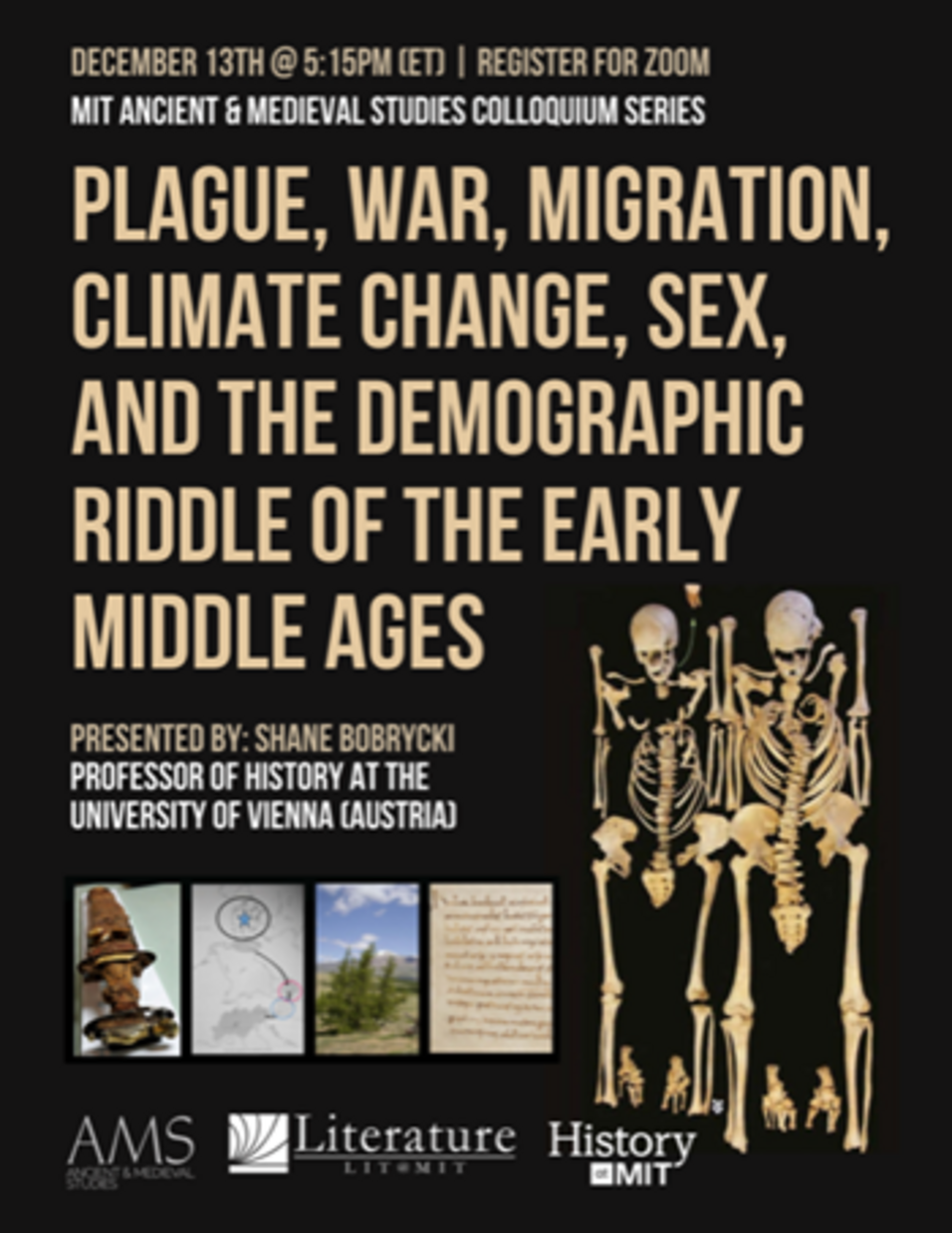Ancient & Medieval Studies Colloquium presents
Plague, War, Migration, Climate Change, Sex, and the Demographic Riddle of the Early Middle Ages
Presented by: Shane Bobrycki
Professor of History, University of Vienna (Austria)
When: Monday, December 13th @ 5:15pm (Eastern Time) & 23 / 11PM Central European Standard Time
Register: https://mit.zoom.us/meeting/register/tJMsfu6orTgoGNHxnIrNKPjsfZLRfYpj-fcz
Abstract: The medieval historian Marc Bloch wrote that the “fundamental characteristic” of early medieval Europe (c. 500–1000 CE) was “the great and universal decline in population” that opened the period. Many economic and social historians have agreed. Between the fifth and the seventh centuries, cities and towns diminished by orders of magnitude; some vanished entirely. Settlement density declined almost everywhere. Only gradually did cities and populations recover, a process that gained speed only after 1000. Few question that this demographic pattern had profound economic, social, and political consequences for early medieval history. But historians are less sure why it happened in the first place. What caused populations to drop off in the post-Roman West? Why did they remain low for so long? Why did the demographic fate of the West differ from that of its “sibling cultures” around the Mediterranean, the Byzantine and Islamic worlds? In this talk, I reassess the usual suspects for early medieval European demographic history: epidemic disease, endemic warfare, migration, climate change, and the reproductive choices of early medieval families. I will argue that in each case we need to spend more time thinking about the mechanics of causation.
Register in advance for this meeting:
https://mit.zoom.us/meeting/register/tJMsfu6orTgoGNHxnIrNKPjsfZLRfYpj-fcz
After registering, you will receive a confirmation email containing information about joining the meeting.

